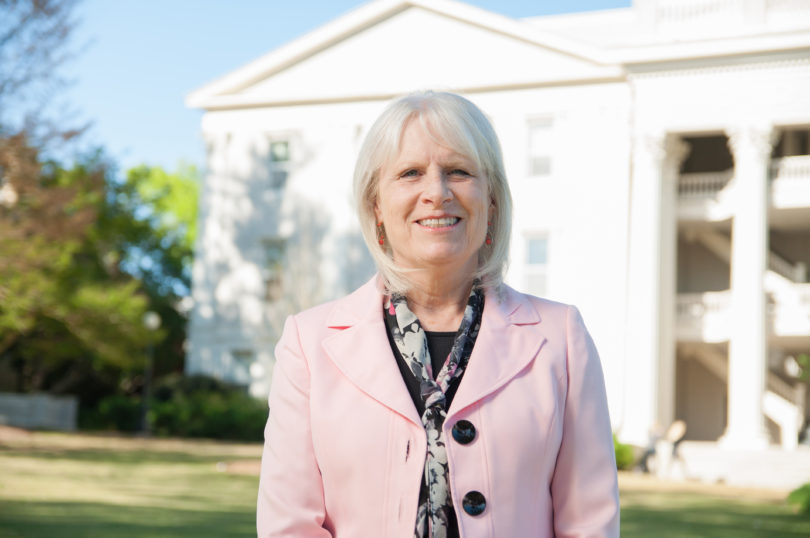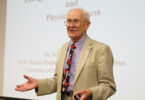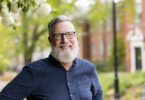Bonnie Joerschke has taken her role as director of the Office of Student Financial Aid beyond her job requirements. She’s made it her personal mission to help students who need extra support to attend UGA.
Since her arrival from Purdue University in 2008, Joerschke has worked in partnership with the Office of Undergraduate Admissions, the Division of Development & Alumni Relations and the Division of Academic Enhancement to provide access to college for more than 270,000 undergraduate and graduate students seeking financial aid, which totals more than $4.02 billion in federal, state, institutional and private scholarships, grants and loans over the last 10 years.
Around 81 percent of UGA students have the HOPE or Zell Miller scholarships, but many students can’t afford to pay the gap in expenses like books, supplies, housing and food not covered by the scholarships. Joerschke’s passion and her unquestionable compassion for those who fall in the $100 million financial aid gap each year has motivated Joerschke throughout her 40-year career in student financial aid, rooted in her own experience as a first-generation student from a single parent household.
“For me, the absolutely most rewarding part is being able to help students who wouldn’t be here—or anywhere else—without financial aid,” Joerschke said. “This is what provides them access to college, to overcome barriers to an education.”
To students like Ali Elyaman, she’s more than just a financial aid director.
“Bonnie understands many of the struggles low-income students face, and she cares about us like we were her own children,” said Elyaman. “She is always making sure that I’m up to par with my performance in school and just in life. She’s always there to listen to our problems, and if she can’t directly remedy them, she gives us advice and connects us to resources that can.”
Joerschke helps students work through residence hall issues, homelessness and food insecurity, and proactively connects them with campus resources like academic counselors and tutors, the Career Center, the University Health Center and food pantry. Her efforts have made a significant contribution to UGA graduation and retention rates, which are among the highest in the nation for a public university.
This year alone, Joerschke has mentored 42 OSFA student scholars who are at-risk for not completing their degrees. She works throughout the year to develop good relationships with them, so they know they have someone to count on.
Over the last 40 years, Joerschke has built a national reputation as a leader in student financial aid. She’s served as member and chair on numerous professional committees for Student Financial Aid Administrators at the state, regional and national levels, including the College Board, a nonprofit organization that connects students to college success and opportunity. Because of her knowledge and expertise in Pell Grants and higher education financial aid regulations, she has testified twice before the Advisory Committee on Student Financial Assistance in Washington, D.C. In 2017, she received the Eleanor S. Morris Service Award for Financial Aid from the College Board.
Joerschke never intended to go into the field of student financial aid. However, her two degrees in anthropology—the study of humankind—prepared her for a career that started with a student position in the financial aid office at a small community college in Colorado in 1975 and blossomed into something about which she has become very passionate. Now, at the end of her career, her greatest success has been the contribution of human-kindness to a field dictated by hardline numbers.
Joerschke has worked since she was 16 years old to help support her family, so when she retires on June 30, she’s looking forward to finding out what it’s like not to work.
“Volunteerism is definitely in my future,” she said. “My husband and I also want to travel and work in the garden. But I will continue helping people in some way. That’s just who I am.”







